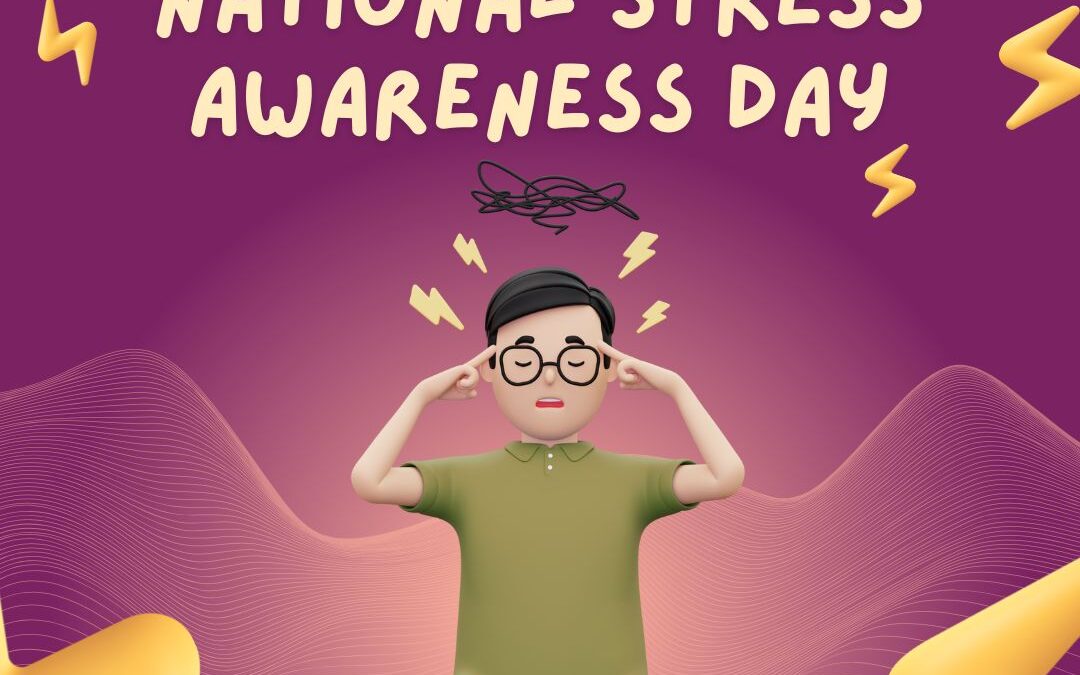by Marlena Abela
Today, on Stress Awareness Day, we’re reminded to reflect on how stress affects our overall well-being and to examine the ways we cope with these feelings. Managing stress is crucial not only for our psychological wellbeing but also for our physical and social health, enabling us to lead happier, healthier lives.
At some point of our lives, we have all been affected by stress. So, it is important to recognise its signs and learn effective coping strategies.
What is stress?
Stress is a natural response to challenging situations when we feel pressured or threatened. It is a part of the body’s fight-or-flight mechanism, which helps us react to threatening situations.
Experiencing stress at times is normal and it can even motivate us to reach our goals. However, ongoing, chronic stress can negatively affect a person’s wellbeing.
During a stress reaction, our body undergoes various physical changes, such as increased breathing, a rise in blood pressure and heart rate, a slowdown of the digestive system, and muscle tension. These reactions are meant to help us respond to immediate threats, but when they become chronic, they can lead to serious health issues like heart disease, anxiety disorders, and depression.
Acute vs Chronic Stress
The experience of stress can be acute or chronic. Acute stress arises from short-term situations, like a disagreement with someone, or sitting for an exam. Although distressing, acute stress is usually resolved in a short period of time.
Contrastingly, chronic stress occurs when stressors persist, like a challenging relationship or circumstances that are difficult to avoid, like poverty or discrimination. Chronic stress varies from person to person, and it can have profound health effects. In fact, chronic stress is usually associated with issues like headaches, fatigue, difficulty concentrating, and even conditions like irritable bowel syndrome (IBS) and coronary artery disease.
Recognising the Signs of Stress
Everyone experiences stress differently, but common symptoms include:
- Emotional Symptoms: Feeling overwhelmed, anxious, or irritable.
- Physical Symptoms: Headaches, muscle tension, fatigue, and digestive issues.
- Behavioural Symptoms: Changes in sleep or eating patterns, and withdrawal from activities.
- Cognitive Symptoms: Difficulty concentrating, memory issues, and constant worry.
How to Better Manage and Reduce Stress
- Exercise: regular physical activity can help reduce stress hormones and improve mood.
- Reduce Intake of Caffeine, Drugs, and Alcohol: these substances can exacerbate stress and anxiety.
- Maintain a Healthy, Balanced Diet: proper nutrition supports good health, and can help stabilise mood and energy levels.
- Breathing and Relaxation Techniques: practices like deep breathing, meditation, and progressive muscle relaxation can slow your heart rate and promote a state of calm.
- Talk with Family, Friends, or Professionals: sharing your feelings with others can provide support and perspective. Don’t be afraid to reach out to mental health professionals if you need more help.
- Journalling: writing down your thoughts and emotions can help you process and manage stress. It can also provide insights into patterns and triggers.
- Create boundaries: learn to say ‘no’ when necessary to avoid becoming overwhelmed.
- Engage in Hobbies: spending time on activities you enjoy can be a great way to relieve stress and recharge.
While some stress is a part of life, effectively managing it helps us protect our mental health and our wellbeing. By integrating healthy habits and coping mechanisms, we can build resilience and better handle life’s ups and downs.
References
American Psychological Association. (2024, October 22). 11 healthy ways to handle life’s stressors. https://www.apa.org/topics/stress/tips
National Health Service. (2023, December 11). 10 stress busters. https://www.nhs.uk/mental-health/self-help/guides-tools-and-activities/tips-to-reduce-stress/
World Health Organization. (2022, June 17). Stress. https://www.who.int/news-room/questions-and-answers/item/stress

